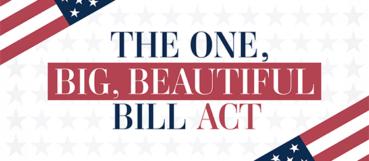Update on a possible universal charitable deduction

During the COVID-19 pandemic, Congress temporarily enabled individual charitable donors who didn’t itemize federal income tax deductions to deduct up to $300 in contributions in both 2020 and 2021. This universal charitable deduction galvanized many donors who might not otherwise have supported charities in those years. However, the deduction expired after 2021. A bipartisan group of U.S. senators, with support from many in the not-for-profit sector, are attempting to revive this tax break.
Donations drop, then rise
The approximate doubling of the standard deduction under the Tax Cuts and Jobs Act encouraged many donors who previously had itemized deductions and deducted charitable gifts to instead take the standard deduction. Researchers at Indiana University and the University of Notre Dame have found that this change resulted in a $20 billion drop in donations to charity in 2018, the year the higher standard deduction went into effect. Many nonprofits suffered from this pullback.
Although pandemic disruptions generally made giving data less reliable starting in 2020, the temporary universal charitable deduction appears to have motivated donors in middle and lower income brackets to give. According to the National Conference of State Legislatures, over 47 million U.S. households used the tax incentive in 2021 — and more than 21% of these donors had adjusted gross incomes under $30,000.
Potential congressional action
In early 2023, a bipartisan group of U.S. senators introduced the Charitable Act. (A similar bill was introduced in the U.S. House in May 2023.) This bill would expand and extend the nonitemized deduction for charitable giving by reviving and increasing the $300 deduction permitted in 2020 and 2021 ($600 for married couples filing jointly in 2021). Nonitemizing individual taxpayers would potentially be able to deduct about $4,500 (double that for joint filers) in donations annually.
Not surprisingly, many nonprofits and sector advocacy groups, including the National Council of Nonprofits and Charitable Giving Coalition, support the legislation. The most recent Giving USA survey (released by The Giving Institute) reported that charitable donations dropped by an inflation-adjusted 2.1% in 2023, which researchers believe is part of a longer-term trend toward donating less to charity.
Future of the bill
Although the Charitable Act was referred to the Senate Finance Committee, it hasn’t been taken up and its future in its current incarnation is in doubt. Organizations such as the Association of Fundraising Professionals are encouraging members to contact their legislators to revive the bill. And the nonprofit sector is likely to continue to lobby for legislation it believes will raise charitable giving levels.
© 2024





